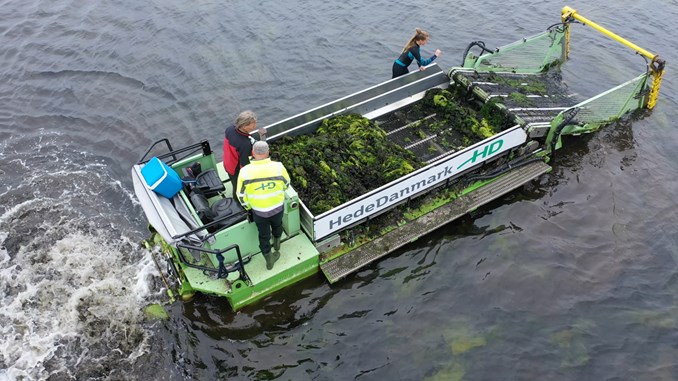Tech’s strategy in practice: From problem to plant-based ground beef - seaweed protein will enrich food and create a better marine environment
In 2020, employees in the focus group for the green transition prepared input for the faculty's joint strategy. The focus group proposes a high level of ambition, taking outset in a close collaboration between science, businesses and a number of other stakeholders. The faculty already has projects on the green agenda, for example the interdisciplinary SeaSus-protein project.

The SeaSus-protein project is a clear example of the strategy and ambition for the green transition that the faculty will be following in the future.
The aim of the project is to harvest the green seaweed plant, known as sea lettuce, from Danish waters, extract protein from it, and then use that protein to enrich other foods, such as plant-based ground beef. Seaweed protein will thus contribute to more sustainable food production. Harvesting the sea lettuce will also benefit the marine environment.
It takes place in a collaboration between researchers from the Department of Food Science, the Department of Bioscience, the Department of Animal Science and the Department of Environmental Science are collaborating with Skive Municipality as well as four companies: Nordic Tang Aps, Nordic Marine Nutrition ApS, HedeDanmark, WSP and Skive Municipality.
Large deposits of sea lettuce in Danish fjords are a symptom of high nutrient additions and poor environmental quality. The sea salad absorbs nitrogen and phosphorus from the marine environment as it grows and releases the nutrients again when it rots. The sea salad smells foul when it rots, and simultaneously releases nitrous oxide and methane. Harvesting the sea salad before it rots, like in the SeaSus project, minimises the climate impact, improves the marine environment, and increases the recreational value of the affected fjord areas.
In addition to sea-salad harvesting, the project includes technology development for protein extraction, food formulation, sensory evaluation, environmental-impact evaluation and techno-economic assessment. SeaSus-protein is being led by Trine Kastrup Dalsgaard from the Department of Food Science, and the project has received a grant from the Green Development and Demonstration Programme (GUDP).
While preparing the whitepaper, Carsten Suhr Jacobsen, head of the Department of Environmental Science and one of the chairs of the focus group, highlighted interdisciplinary collaboration at the faculty in connection with the green transition:
"Tech can really make a difference in the green transition. The academic disciplines are wide-ranging and can support and collaborate with one another to find the solutions that are needed. This is why identifying ways to strengthen collaboration at the faculty is a central theme for the focus group.
Tech educates and researches in solutions for the green transition. The focus group proposes a high level of ambition based on close collaboration between science, business and a number of other stakeholders.
Tech's approach to sustainable development of the chain between agriculture, industry, construction, energy and consumption should be systemic within research, education and public sector consultancy. This includes solutions to further reduce greenhouse gases and other emissions, develop synergies, and reduce trade-offs between food supply, biodiversity, the ecosystem and the use of resources, and finally to develop new technologies and digitalisation.
The group emphasises that all solutions should include biological, technical and societal aspects of the green transition.